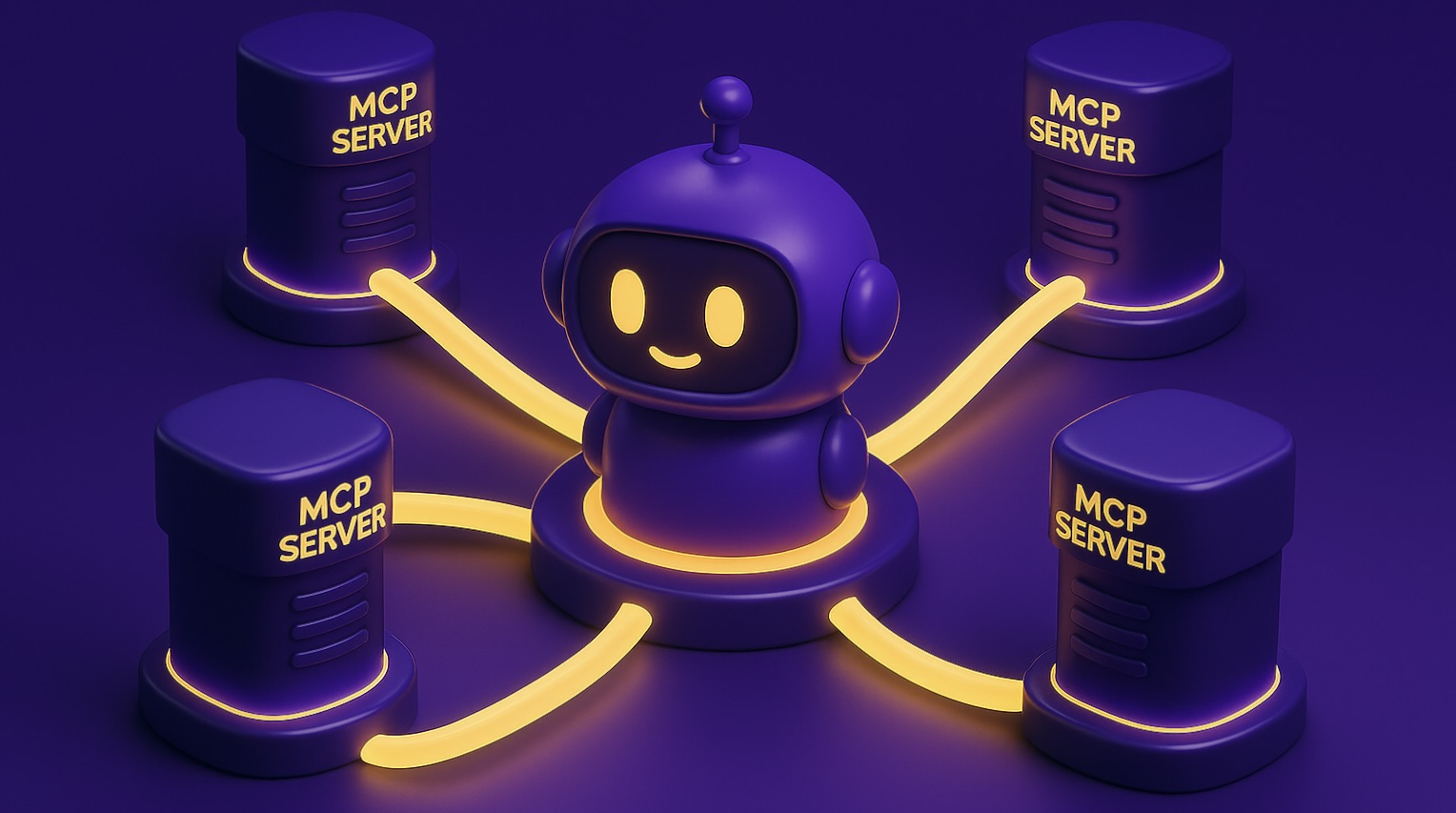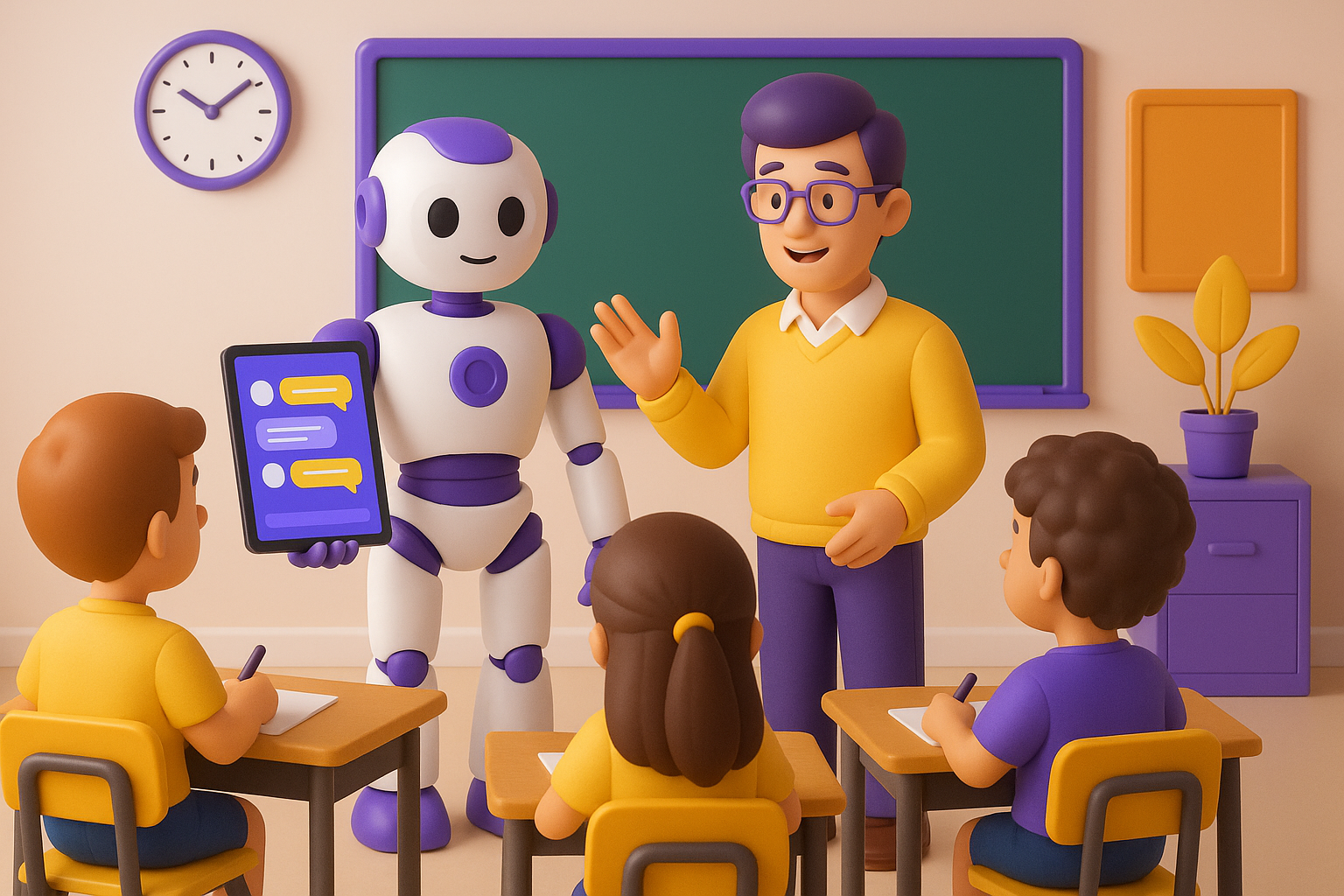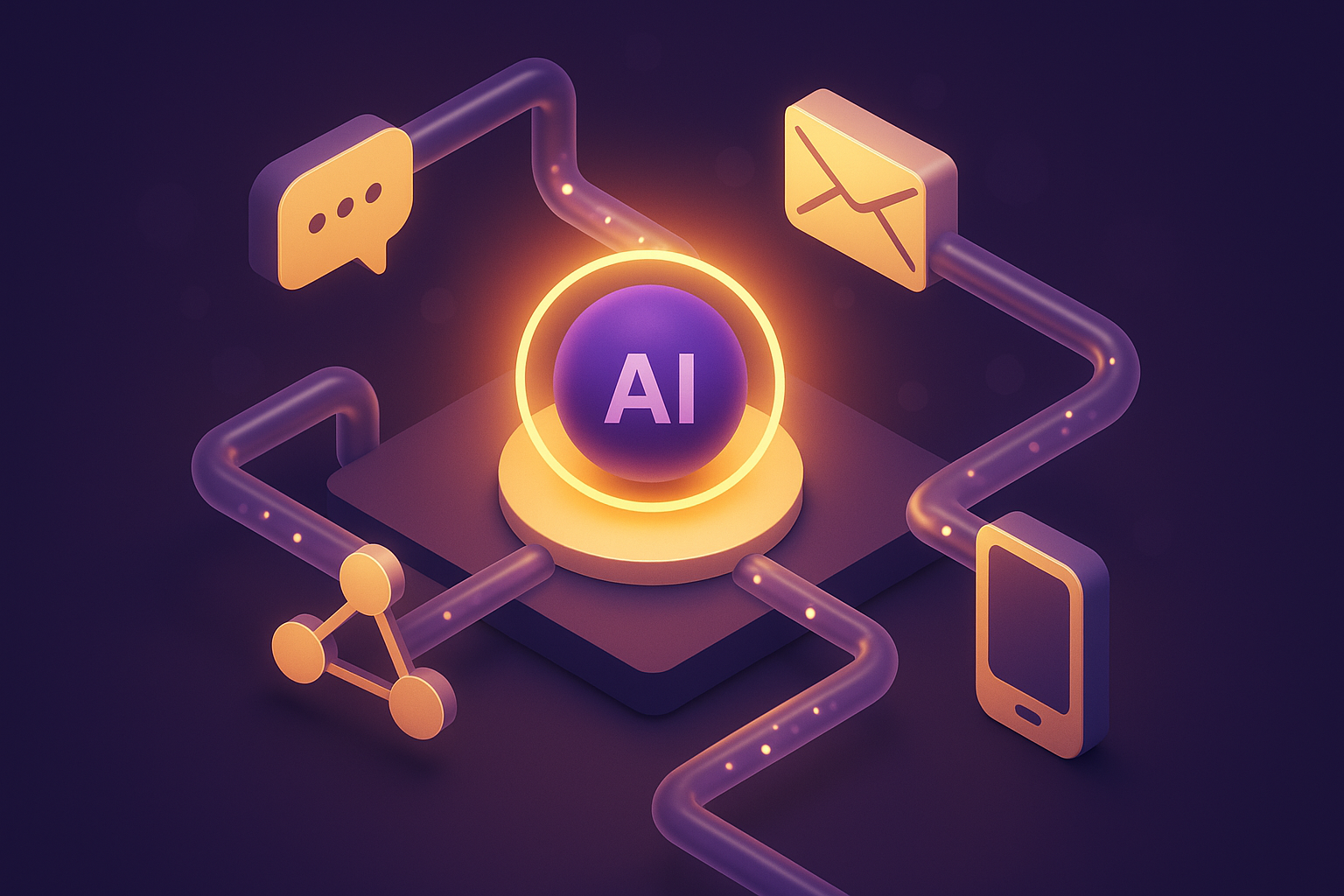Today, it’s no longer enough for an AI chatbot to answer only pre-learned questions. Users expect up-to-date information and access to real company data. That’s why MCP servers play a key role in the evolution of AI chatbots. It’s not about higher hardware performance, but about a new standard (Model Context Protocol) that enables chatbots to securely connect with internal systems and tools — from CRM and calendars to databases or ERP. This lets chatbots work with live data, call services in real time, and become true virtual assistants that save time and streamline communication for companies.
Introduction to AI Chatbots
Over the past few years, AI chatbots have become an integral part of many business processes. From customer support and internal communication to automating administrative tasks, chatbots provide fast and efficient solutions that save time and costs. Traditional chatbots, however, have limits — especially when it comes to working with current data and delivering personalized responses. This often leads to user frustration, as people expect more than basic answers to predefined questions.
To fully unlock the potential of AI chatbots, they need access to real data and the ability to communicate with various enterprise systems. This enables them to provide more accurate and up-to-date information, which is crucial for improving the user experience. In this context, MCP servers introduce a revolutionary shift in how chatbots operate and what capabilities they can offer.
MCP servers — Model Context Protocol servers — are becoming the new standard for integrating AI chatbots with enterprise systems. It’s not just about delivering higher performance; more importantly, they allow chatbots to securely and efficiently communicate with internal tools such as CRM systems, calendars, databases, or ERP. Thanks to this technology, chatbots can work with live data, call services in real time, and become true virtual assistants that save time and streamline company communications.
What Are MCP Servers?
MCP servers — Model Context Protocol servers — represent a new generation of server architecture designed to enable deep and secure integration of AI systems with various business applications and databases. The protocol is built to provide fast and secure access to real data, which is essential for delivering relevant and up-to-date answers from AI chatbots.
The main goal of MCP servers is to let AI chatbots operate with context, meaning they can respond based on current information and situations. This is a major shift from traditional chatbots that often rely on pre-learned answers and cannot dynamically react to changes in company data or processes. MCP servers give chatbots access to current information from multiple sources, increasing their effectiveness and usefulness.
Another important aspect of MCP servers is their ability to securely integrate different systems and applications. Security is crucial today, especially when accessing sensitive corporate data. MCP servers are designed to ensure that data is transmitted and stored safely, minimizing the risk of data leakage or unauthorized access. This is particularly important for companies working with sensitive customer information or business data.
How MCP Servers Expand AI Chatbot Capabilities
One of the key benefits of MCP servers is their ability to extend AI chatbot capabilities far beyond traditional options. By integrating with different business systems, chatbots can retrieve and process data in real time, enabling more accurate and personalized responses. This is essential for improving the user experience and increasing customer satisfaction.
For example, if an AI chatbot integrates with a CRM system through an MCP server, it can instantly access information about a specific customer, including purchase history, previous interactions, and preferences. This means the chatbot can deliver personalized recommendations, resolve issues faster and more efficiently, and offer relevant information without manual intervention.
Another significant advantage of MCP servers is their ability to handle large volumes of data from different sources. This allows chatbots to analyze and interpret complex information, which is key to providing high-quality answers and solutions. For instance, chatbots can analyze real-time inventory, track deliveries, or provide accurate information on product availability. This not only improves efficiency but also reduces errors and misunderstandings.
How MCP Enables Real-Time and Large-Scale Chatbot Operations
One of the biggest challenges when implementing AI chatbots is operating in real time and at scale. Traditional chatbots often hit performance and capacity limits, leading to slow responses and limited functionality. MCP servers address this by providing the scalability and robustness required for efficient real-time chatbot operations.
MCP servers are built to handle large volumes of requests and data without compromising responsiveness. This means chatbots can quickly and efficiently process user requests — whether queries, data retrieval, or service calls. This capability is critical for smooth, seamless interactions between users and chatbots, which is essential for an overall better user experience.
Another advantage of MCP servers is their ability to operate at large scale, which is necessary for companies deploying chatbots to many users or devices. MCP servers allow easy scalability, meaning organizations can quickly and efficiently add new chatbots and expand functionality as needed. This is crucial for staying competitive and ensuring that chatbots continue to perform effectively as usage grows.
Security Aspects of MCP Servers for AI Applications
Security is one of the most important aspects of implementing AI chatbots, especially when accessing sensitive company data and integrating with multiple systems. MCP servers are designed to deliver a high level of data protection and security, which is key to minimizing risks and maintaining user trust.
One of the main security features of MCP servers is encryption of data in transit and at rest. This means all data flowing between chatbots and business systems is encrypted, minimizing the risk of unauthorized access or data leakage. Encryption is critical for companies working with sensitive information such as personal customer data or trade secrets.
Another essential security feature is authentication and authorization of users and systems. MCP servers ensure that only authorized people and systems can access sensitive data and functions. This includes using various authentication methods such as passwords, tokens, or biometrics, which increases the level of security and data protection. Authorization ensures users and systems only access data and functions that are relevant and necessary for them.
Why MCP Is Not Just Another Server: Difference from Classic API Integrations
At first glance, MCP servers may look like just another server technology for integrating AI chatbots with enterprise systems. In reality, MCP servers differ fundamentally from classic API integrations in several key areas.
One major difference is how MCP servers process and interpret data. While traditional API integrations often rely on static, predefined data structures, MCP servers enable dynamic and contextual interpretation of data. This means chatbots can respond based on current information and situations, improving their ability to deliver accurate, relevant answers.
Another important difference is the flexibility and scalability of MCP servers. Classic API integrations often require complex and time-consuming changes to handle growing volumes of data and requests. MCP servers are designed to be easily scalable and flexible, allowing companies to quickly and efficiently adapt their chatbots to changing needs and requirements — crucial for staying competitive and ensuring consistent performance.
Security is another area where MCP servers excel compared to classic API integrations. MCP servers provide a high level of data protection and security, essential for minimizing risks and ensuring user trust. This includes data encryption, user and system authentication, and authorization — ensuring only authorized parties can access sensitive data and functions.
The Future of MCP Servers in AI
The future of MCP servers in AI looks very promising, given the growing importance and adoption of AI technologies across industries. MCP servers have the potential to fundamentally change how companies implement and use AI chatbots, leading to significant improvements in efficiency, accuracy, and security.
One key trend we can expect is deeper integration of MCP servers with various AI applications and systems. This will allow chatbots to work with even larger volumes of data and improve their ability to deliver personalized, relevant responses — especially valuable for companies aiming to enhance customer service and satisfaction.
Another important trend is the development of new, advanced MCP features that enable even better integration and cooperation across systems and applications. This may include advanced machine learning and data analysis capabilities that help chatbots better understand and interpret complex information. Such progress will be crucial for handling increasingly complex requests and tasks.
Security will remain a top priority for MCP servers, especially as cyber threats and attacks continue to grow. MCP servers will need to keep innovating and improving security features to protect sensitive data and minimize risks — not only encryption and authentication, but also advanced methods for threat detection and prevention.
Conclusion and Recommendations for Chatbot Developers
In conclusion, MCP servers represent a significant step forward for AI chatbots and their capabilities. By integrating with various enterprise systems and working with real data in real time, chatbots can provide more accurate and personalized responses, increasing their usefulness and efficiency. The security aspects of MCP servers further ensure data protection and risk minimization, which is vital for user and business trust.
For chatbot developers, it’s important to become familiar with MCP servers and their potential to fully leverage their benefits. This includes not only technical knowledge and skills, but also an understanding of how MCP servers can improve chatbot performance and functionality. Developers should also track the latest trends and innovations around MCP to respond quickly and effectively to changing market needs and requirements.
Another key recommendation for developers is to focus on security and data protection. MCP servers provide a high level of security, but it’s essential to design all aspects of chatbot implementation and operations with security in mind — including regular updates and maintenance, user training, and monitoring potential threats and risks.
Ultimately, MCP servers are a cornerstone for building truly smart AI chatbots that can save time and streamline communication. Teams that embrace this technology and use it fully will gain a significant market advantage and deliver solutions that meet the highest standards of quality and security.



